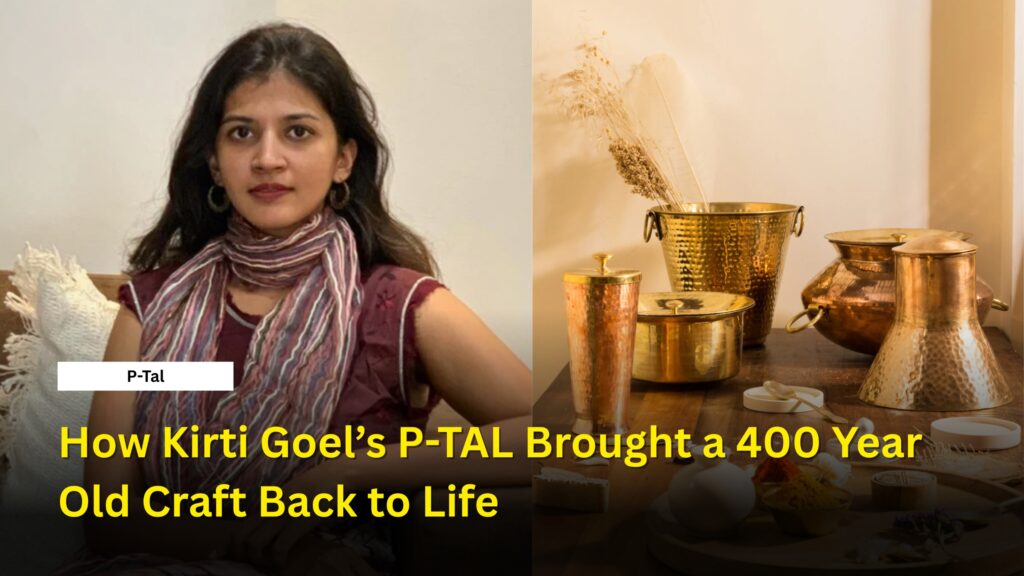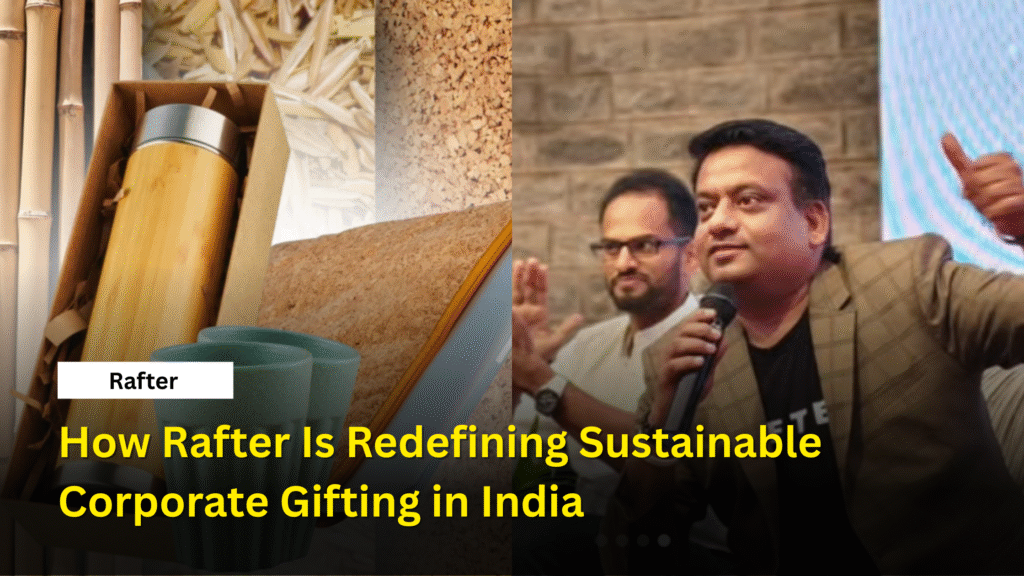Discovering your true calling often takes unexpected turns. For Kirti Goel, now 28, it began with
a seemingly casual suggestion from her teacher to “try something artistic.” That advice not only
changed her career path but also set her on a mission to revive the UNESCO-recognized
Thathera craft of hand-beaten brass and copperware.
Today, Kirti is the founder of P-TAL short for Punjab Thathera Art Legacy—an Amritsar-based
brand producing handcrafted brass, copper, and bronze kitchenware. Under her leadership, the
company has grown into a Rs 36 crore-a-year business, uplifting artisan communities and giving
ancient Indian craftsmanship a global audience.
The Early Years: From Engineering Aspirations to Design School
Kirti’s initial plan was to pursue engineering, but she quickly realized it wasn’t her true passion.
Encouraged by her teacher, she joined Pearl Academy, where her creativity truly flourished.
In her second year, she took part in a craft documentation project focusing on the Chamba
Rumal, a style of hand embroidery from Himachal Pradesh. This opened her eyes to the depth
and diversity of Indian handicrafts, sparking an interest in traditional art forms that would shape
her career.
While researching other heritage crafts, Kirti discovered the Thathera
community—metalworkers who shaped brass and copper into kitchen and ceremonial items by
hand. The craft, over 400 years old, was on UNESCO’s Intangible Cultural Heritage list, yet it
was fading fast due to lack of market demand and rising costs of raw materials.
Birth of P-TAL: Merging Design and Heritage
Determined to preserve this dying art, Kirti founded P-TAL in 2016. Her mission was two-fold:
modernize traditional designs to appeal to contemporary buyers, and ensure artisans could earn
a sustainable livelihood from their craft.
She began by visiting artisan clusters across India Amritsar, Jaipur, Moradabad, Lucknow, and
Dehradun learning the techniques, challenges, and stories of the craftsmen. She found that
many artisans had shifted to making cheaper aluminium products to survive.
By collaborating closely with them, Kirti reintroduced them to brass and copper work, offering
fair wages and a platform to sell their creations to customers who valued authenticity and
tradition.
Empowering Artisans Through Fair Wages
One of P-TAL’s most significant achievements has been improving artisans’ incomes.
Traditionally, Thathera artisans earned as little as Rs 20 per hour. With P-TAL’s projects, that
rate has increased to about Rs 150 per hour.
Families who once struggled to make ends meet now earn between Rs 25,000 and Rs 50,000 a
month, depending on order volume. This financial stability has encouraged younger generations
to take up the craft instead of abandoning it for other jobs.
Artisan Mandeep Singh recalls the uncertainty of the past: “We would wait for occasional festival
orders. Now, we have steady work all year.”
Innovation Meets Tradition
Kirti’s design sensibility helped her find ways to merge heritage with modern utility. For example,
she transformed the traditional parat a shallow, round utensil used for kneading dough into an
elegant wall clock.
Since artisans were already skilled in making parats, this product required minimal retraining but
opened up a new category of functional décor. Similar innovations allowed P-TAL to expand its
range without diluting the authenticity of the craft.
Building a Modern Heritage Brand
Initially, P-TAL faced challenges convincing buyers to pay premium prices for traditional
cookware. But over time, shifting consumer trends particularly after COVID-19 played in their
favor. People began seeking sustainable, long-lasting products with cultural significance, and
P-TAL fit perfectly into this niche.
The brand now offers more than 80 handcrafted items, including parats, tumblers, ladles, baking
trays, and serving bowls. The designs retain a timeless charm while meeting the needs of
modern kitchens.
Maharashtra and Karnataka have emerged as P-TAL’s largest customer bases, but the brand
also caters to clients across India and internationally through online sales and exhibitions.
From Craft Revival to Commercial Success
With annual revenues touching Rs 36 crore, P-TAL is proof that preserving cultural heritage can
go hand-in-hand with building a profitable business.
The company currently works with about 50 artisan families, each contributing to a legacy that
dates back centuries. For Kirti, the journey has been as much about cultural pride as it has been
about entrepreneurship.
“I didn’t know exactly where I was headed when I started,” she says, “but I knew I wanted to
create something meaningful. Reviving this craft has given me that purpose.”
A Legacy Restored
By re-establishing the Thathera craft in the marketplace, P-TAL has ensured it won’t disappear
into history books. The brand has not only given artisans financial independence but also
restored the dignity and recognition their work deserves.
For customers, owning a P-TAL product isn’t just about having a utensil it’s about holding a
piece of history, shaped by human hands, carrying the warmth of centuries-old traditions into the
present day.
Featured by TheMarketingMirror.com
At TheMarketingMirror.com, we celebrate ventures that combine tradition, creativity, and
measurable social impact. P-TAL’s journey from reviving a 400-year-old craft to building a Rs 36
crore brand that empowers artisan families shows how preserving heritage can also fuel
sustainable business growth.
If your venture is redefining industries, preserving culture, or transforming livelihoods, we’d love
to share your story. Reach out to themarketingmirror.com where authentic, high-impact
entrepreneurship finds the spotlight it deserves.



